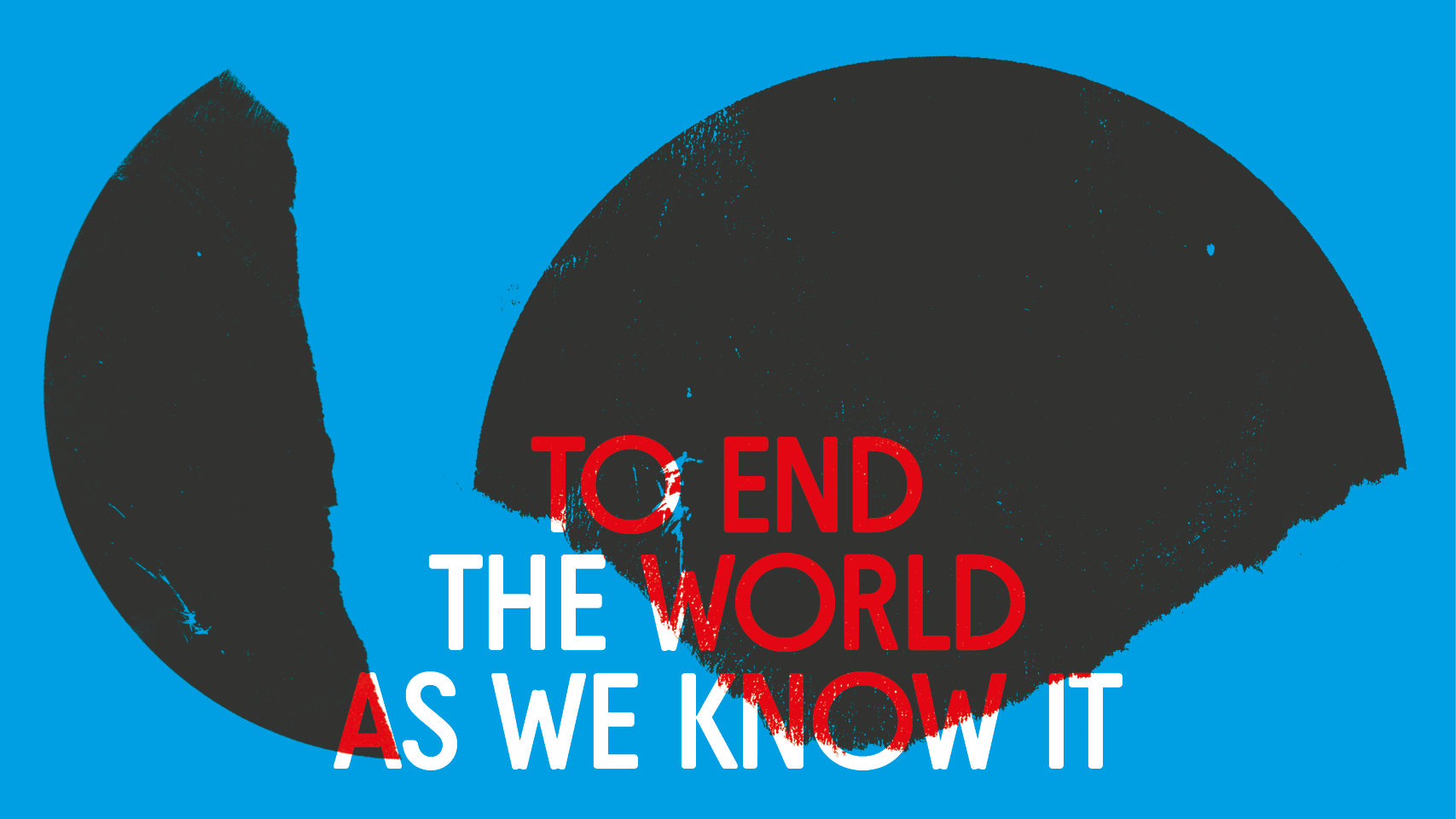
Episode 11: To End the World As We Know It
Episode 11 brings together five days of film, music, discussion and study to think through other ways of existing and of conceiving of existence—arrayed against the ecological and social devastations of a capitalistic, colonial worldview that has been obliterating other worlds for over 400 years.
Through art, speculation and collective assembly, it brings together artists, filmmakers, musicians, poets, activists, historians, educators and communities who practice or imagine other ways of knowing the world, right here and now.
Different ways to spend time at the Episode:
IRL / URL
- Please come along to the live events at the Tramway. If you can’t be there in person, join our live stream.
DISCUSSION
- Black and Indigenous worlding w/ Denise Ferreira da Silva, Arissana Pataxó, Geni Núñez and Leanne Betasamosake Simpson and Ailton Krenak (by video).
- Anti-Denialist Assembly, Ayreen Anastas, Rene Gabri, Houria Bouteldja, Avery F. Gordon with Amirah Silmi and Françoise Vergès joining online.
READINGS
- Indigenous and Black abolitionist worldmaking w/ Leanne Betasamosake Simpson and Robyn Maynard.
- Beginning from the end: perspectives from Glasgow’s anti-capitalist and anti-racist struggles.
FILM
- Indigenous sovereignty w/ the Karrabing Film Collective.
- Caribbean-European insurgency w/ Beatriz Santiago Muñoz, Ligia Lewis and Emilia Beatriz.
- Improvised live film performance by Ayreen Anastas & Rene Gabri.
STUDY SESSIONS
- Geek out with: Elizabeth Povinelli, Houria Bouteldja, Geni Núñez, Amilcar Packer and Arissana Pataxó, Mezna Qato & Sadia Shirazi, and Rashad Becker.
MUSIC
- Counterflows collaboration, with Chuquimamani-Condori, Rashad Becker, Sunik Kim, Nat Raha & Ailie Ormston.
WORKSHOPS
- Enacting scores for Muslim sociality w/ A Future Collective.
- An anti-imperialist resource for young people w/ Hussein Mitha.
BOOKSTALL
- Joining us at the Episode will be Aye-Aye Books with a specifically selected range of titles covering the themes and artists participating at the Episode.
Audio Version of Programme Announcement
Introduction
This message from Denise Ferreira da Silva—sent to a WhatsApp group we have with her and Amilcar Packer—pretty much sums up the main theme of this Episode.
Here are some of the things in regard to the phrase “the end of the world as we know it”: it is about the end of the known world, the world state: capital in all its apparitions and the modes of knowing (scientific and historical) that support its colonial (extractive, expropriative, genocidal) practices and propositions and promises (of development, of freedom, etc, which are all contingent on total violence). That means that other modes of knowing and more importantly as other ways of existing and of conceiving of existence (of everything human and nonhuman) must be imagined/ imaginable, experimented/ rehearsed, and supported by any means necessary. The end of the world as we know it would bring the end of ‘world’ itself, and with that of phenomenology and of the thing it consolidates, subjectivity, which is the thing that defines itself in/ as knowledge. To end the world as we know it is to exist otherwise right here/now.
Denise Ferreira da Silva
For more on this, and on the other threads that compose the thinking behind the Episode, have a look at the longer introduction below:
ReadWhat if we took seriously the possibility that this world, as we know it, may be coming to an end? What if we considered that this may well result from both ecological and social devastations as well as radical propositions and programs for another world, a better world, whatever that may look like? We dread the loss of this world, but have we begun to imagine the one to come? How to imagine it collaboratively?
Arika conceive of Episodes as ongoing, deconstructed festivals: iterative social aesthetic spaces of study. Attending to what’s going on now, present Episodes are informed by past ones, in roundabout, non-linear ways. Recent ones have looked through the lens of abolition—of prisons, police, of current regimes of power—to reaffirm our connections to the life-affirming, contingent, intertwined and inseparable sociality that should instead endure.
Each Episode finds spaces of overlap between the shared concerns of lots of the different networks Arika are involved with. These develop narratively over time as a set of evolving themes. Those themes doesn’t describe every aspect of all of the artists, thinkers or organisers practices at the Episode. But it’s maybe a space from which we can start generative conversations. Given what is happening in Gaza—and Sudan, and Nagorno-Karabakh, and the Amazon and elsewhere—Episode 11 will directly relate past enquiries to the violence of contemporary settler colonialism, and the Eurocentric fictions that legitimate it: the possessive individual, whiteness, property and the state; and on practices of worlding and of knowing the world otherwise, that persist, resist and endure under the duress of colonial violence.
Imperialism and ongoing colonialism have been ending worlds for as long as they have been in existence, and Indigenous and Black peoples have been building worlds and then rebuilding worlds for as long as we have been in existence. Relentlessly building worlds through unspeakable violence and loss. Building worlds and living in them anyway.
For the last 400 years, one way of imagining existence has dominant the world. Robyn Maynard has called this fiction a death-drive-come-worldview. Geni Núñez calls is a monoculture of thought, and part of what Ailton Krenak thinks of as specifically white repertoire. It is a way of knowing the world extruded out of the practices of power—the colonial and racial violence of European global extraction—to retrospectively legitimate them. This false universalism rests a specific idea of human existence, as summarised by John Locke—dragged by Ligia Lewis in her film; A Plot, A Scandal—who set out Man’s ‘natural rights’ to life, liberty and property: ownership of himself, his body, his status as human, and his right to own and extract from anything he deems less-than-human.
Every geo-political conflict is a function of the brutalities of ontological thinking.
There is nothing natural in Locke’s propositions. They are expedient fictions invented to fulfill the needs of what would soon become Europe’s bourgeois class. They underpin the logic that allowed capitalism to metastasize across the globe through extractive, expropriative, genocidal practices grounded in total violence and state mediated killing—by law, surveillance, debt, medicine, enslavement, science, dispossession, pollution, language, war, disease, or simply by a signature on a page.
Humanism is one of the centrepieces of your immune system. “An organism’s immune system is a biological system consisting of an organized set of recognition and defence mechanisms, which distinguish between the ‘self’ from the ‘non-self’…What is identified as a ‘non-self’ molecule is destroyed”…Attacked on all sides, provoking hatred all over the world, cornered into justifying your conquests, weakened by the multi-faceted resistance movements and especially by the struggles for independence…you have had to equip yourselves with an apparatus for global and structural defence that would ensure the continuation of the imperial project as well as the longevity and survival of your social body. This political-ideological apparatus is the white immune system. Through it, many antibodies have been secreted. Among them, humanism and the monopoly of ethics.
Liberal discourse often assumes that the best way to fight oppression is by appealing to a universal and basic human status. We have learned through previous Episodes and from friends involved in the continuation of the Black Radical Tradition—Fred Moten, Hortense Spillers, Denise Ferreira da Silva— to be much more suspicious of this claim to personhood; that this enclosure of the self is a kind of derangement at the heart of Western liberalism. What if in fact, the logic of the possessive individual—as a form of solitary confinement within a body you own, and which can own others—is a colonial logic? What if this biological logic is the way by which Europeans and their allies separate immanent sociality into manageable property owners, and then into nation states—the imposition of carceral sets of pluralized singularities who own their lands.
This sanitary and hygienic ‘human’ figure is a poor institution manufactured by a civilisation without imagination.
As Aileen Moreton Robinson 5 shows, ‘whiteness’ is first conceived as property: possession was defined to include only the cultural practices of whites. Community’s reciprocal inter-relational existence with the land is broken by coercing people to think of themselves as property owning individuals, not as emerging from a shared sociality. This aspect of colonisation can be seen in globally, in the Scottish Highlands, in Canada, Brazil or Australia. In America the Dawes Act named it as the ‘imposition of severalty’. But these sites of dispossession are not all the same. As Colin G. Calloway 6 or Roxanne Dunbar-Ortiz 7 show, when the Highland Scots were cleared from their land, they were dispossessed into whiteness in the Americas. The Indigenous communities those Scots then colonised—part of gaining their status as white—were dispossessed into what the Eurocentric worldview considers nothingness and abjection.
The colonisation of Palestine was and is still necessitated by capitalist, imperialist and fascist interests and considerations. But the struggle in Palestine is not a reactionary one, it does not seek its own fascism, rather the freedom struggle in Palestine is an anti-capitalist struggle, and as thus it is not a struggle for a nation state, Palestine cannot be a nation state, Israel is, Palestine is the liberation of the world from nation states, from capitalism, even when capitalism has deceived itself into believing that it won the world decades ago. The Palestinians in their fight for Palestine resist uprootedness, they fight for a land, a right and a life, and these exceed the nation state.
As Elizabeth Povinelli sets out, the cunning of late liberalism 9 , in the face of anti-colonial insurgency, was to convince oppressed peoples that rather than self-determination, what they really wanted was to feel included in the state, to be represented within it. By granting the right to think of yourself as a property owning individual, the state is merely sharing some of its mastery with you, as a form of colonial power. By representing and including you, it is reinforcing the colonial power of the individual as settler. Ariella Azoulay 10 , reframes this inclusion as a burdenous, predatory ‘incorporative exclusion’: the granting of certain courtesies and protections, always at a cost and contingent.
One of the costs of this inclusion is the requirement to participate in the denial of the violence this system of power rests upon. For possessive individuals and nation states to persist, for the colonial world not to end, many other worlds continue to be obliterated. This ongoing ending of worlds is the basis of coloniality: a conception of existence that requires entire communities to die in order for others to live and prosper. And from a certain perspective, while it may be the attempt to end others worlds, to the coloniser, it’s not the end of anything: it is just the everyday continuation of the dominant world project; as banal as ‘mowing the lawn’.
Genocide does not take place without denial. In fact, denial precedes genocidal violence, fuels it and is what insures, what gives genocide a future…Denial is not simply saying no, something isn’t happening. This is its baseline variant. Denial is what structures our sense of helplessness against what is happening. Denial names all the mechanisms for remaining complicit in the ongoing genocide and in constructing, participating in the building, expanding of the settlements, the ongoing genocidal-denialist futurity.
But: other ways of knowing the world—of worlding—exist.
While we want to study and animate practices that exhaust colonialism, individuation and the nation state, we also want to learn from and be involved in the ongoing refreshment and rediscovery of multiple collective, insurgent practices of contingent, intertwined life-giving worlding.
…through the dance of affective alliances, which involves me and a constellation of people and beings through which I disappear: I no longer need to be a political entity.
Ailton Krenak 12
At Episode 10, Fernando Zalamea, spoke about the mathematics of sheaves and topoi as metaphorical tools that can help us integrate multiple perspectives. Beyond the atomization of our world, beyond the imposition of diversity, such tools can aid the fight against the monological, as we try to enact the plurilogical in our lives.
Episode 11 tries to bring together such different worldviews, perspectives, and ways of knowing the world: be they abolitionist, Marxist, Communist, Anarchist, from the Black Radical Tradition; from Caribbean radical insurgency; from Indigenous struggle; or Arab, Levantine, North African movements for self-determination and anti-colonial organising; Korean shamanism; or alternative Aymaran practices of space-time. The Episode hopes to create multiple sites of transition between these perspectives: a back and forth, that allows some kind of synthesis, sustenance or replenishment of our commitments to ending the world as we know it.
…the concept of affective alliances, presupposes an affective bond between worlds that are not equal. This conception does not demand equality; on the contrary, it recognizes an intrinsic otherness in each person, in each being. It introduces a kind of radical inequality that forces us to pause.
Ailton Krenak 13
At previous Episodes we have approached some of these other ways of knowing the world through what Denise Ferreira da Silva calls practicing difference without separability. Or what Cedric Robinson might understand as something more than being a person, where we are all equally incomplete.
Episode 11 is an opportunity to ask Leanne Betasamosake Simpson what they are getting at when they say “I am not a Nation State”. What is the We of revolutionary love Houria Bouteldja writes of? How do Karrabing understand being ‘separate-separate and connected’ against an idea of property, ownership, or individuation? How does that chime with the kind of plural protagonists of Beatriz Santiago Muñoz’s Oriana, in their refusal of the traditional distinctions between life and non-life? What do those have in common with the affective alliances Ailton Krenak speaks of: the need to no longer be a citizen, but to just be in flux, to enter the poetic site of affective life; continually making bonds, alliances and meanings as a form of worlding, open to experiencing other worlds, cosmovisions and pluriverses.
We have often used the metaphor of entanglement to understand ways of being otherwise. Elizabeth Povinelli writes about how such ideas are only of use if they recognise the asymmetric distribution of power to affect entanglement that still exists under capitalism; how entanglement is only useful if it contributes to ways of being otherwise to endure. Maybe we can talk about that.
How do Emilia Beatriz or Ligia Lewis engage with practices of grief, revenge, repair or rest contribute to our struggles? How do artists embody anti-colonial worldviews without them being extracting from, or representing them back to the white European gaze? Can we remain aware of ourselves in this at the Episode? How do aesthetic practices mirror or enact social and political concerns; whether Rashad Becker’s sonic fictions, or Chuquimamani-Condori’s compositional approaches that put into practice the comingling that happens in the Aymaran space-time of taypi?
And how—with Karrabing, Ailton Krenak and others—do we unpick European notions of linear time, to understand how the catastrophe we are facing is not one that looms over the horizon, but one that has already been happening for hundreds of years, one that is ancestral? In the face of such ancestral catastrophes, what does it mean for the world to turn its back on us?
Hopefully these and other concerns will emerge over the course of our time together.
A final quote:
The shift away from a politics of recognition would even include our having to abandon what has become the near sacred normative core of our theorisations of a just relationship with the Canadian state. This so-called nation to nation model, built on a framework of mutuality and equality between peoples. Here the 17th Century Haudenosaunee two row wampum treaty with the Dutch often stands in as a paradigmatic model of this normative relationship. Depicting two vessels, a ship and an Indian canoe travelling down a river in parallel and in autonomy with each other, and with each boat never attempting to steer or control the destiny of the other. The problem with these notions of nation to nation frameworks when applied to the contemporary power relations we face today, not power relations that represented 17th Century settler-indigenous relations, is that they assume a moral equivalency between the coloniser and the colonised that does not exist. They also assume the legitimacy of a ship of state’s economic, legal and political institutions, institutions that have all but destroyed the river and the river banks that we are supposed to be peacefully navigating together, with respect and harmony. Under such conditions, recognising the legitimacy of the colonial ship of states right of travel is an impossibility, one that we need to abandon. As such we need to start orienting our struggles towards a different end. Decolonisation, as I have now come to understand it, demands that we sink that fucking ship.
Glen Coulthard 14
- Rehearsals for Living – Robyn Maynard & Leanne Betasamosake Simpson
- A Dam Against the Motion of History – Fred Moten on Palestine & the Nation-State of Israel, Millennials are Killing Capitalism podcast
- Whites, Jews, and Us – Houria Bouteldja
- Ancestral Future– Ailton Krenak
- The White Possessive: Property, Power, and Indigenous Sovereignty – Aileen Moreton Morrison
- White People, Indians, and Highlanders – Colin G. Calloway
- An Indigenous Peoples’ History of the United States – Roxanne Dunbar-Ortiz
- Comments at Anti-Denialist Coalition assembly, May 2024
- The Cunning of Recognition – Elizabeth A. Povinelli
- The Order of Violence – Ariella Azoulay and Adi Ophir in The Power of Inclusive Exclusion, Edited by Adi Ophir, Michal Givoni and Sari Hanafi
- Invitation to Anti-Denialist Coalition assembly, Jan 2024
- Life is not Useful – Ailton Krenak
- Ideas to Postpone the End of The World – Ailton Krenak
- Red Skin, White Masks: Unsettling Conversations, Unmaking Racisms & Colonialism – Glen Coulthard, R.A.C.E. 3 conference, University of Alberta Faculty of Arts, 2014.
Programme Events

To Give Up This World, To Have Many Others – In Conversation with Ailton Krenak
Ailton Krenak (by video) Denise Ferreira da Silva Amilcar Packer
A recorded a conversation that grounds the Episode, exploring Ailton Krenak’s thinking and distinct poetics of life; as it work against capitalism and fascism, as a denunciation of political alliances, and maybe even of ‘politics’.

IN OUR LIFETIME – A New Anti-Imperialist Resource
Hussein Mitha
IN OUR LIFETIME, is an anti-imperialist resource, edited by Hussein Mitha, produced by Arika for Episode 11, featuring poetry, essays, questions, prompts, letters and works of anti-colonial imaginary.

I am not a nation-state
Leanne Betasamosake Simpson Nat Raha
One of the most compelling Indigenous voices of her generation discusses practices of Indigenous Resurgence drawn from Nishnaabeg poetic knowledge.
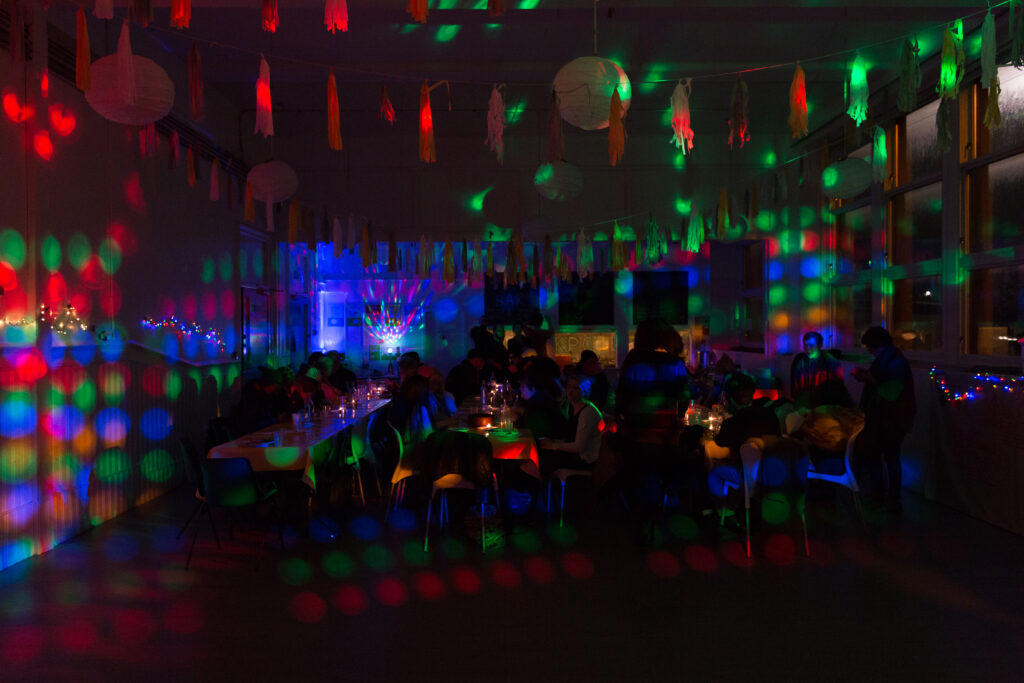
Four Endings to Begin
Masa Nazzal River MacAskill Hannah Proctor Gracie Mae Bradley Joel White
Four perspectives from people involved in different anti-capitalist and anti-racist struggles, considering how ideas of ‘ending’ have shaped their political thinking and praxis.

For Ever Gaza
Ayreen Anastas Rene Gabri
An improvised film about our worlds at the brink, on the edge, in front of a crisis. To stand on the side of life, by seeing the resistance to genocide in Palestine as a turning point to overcome.

Bring a Witness
Sadia Shirazi Mezna Qato
Sadia Shirazi & Mezna Qato will discuss a series of scores that explore the texture and landscape of exile, resistance, and Muslim sociality. These instructional scores trouble the idea that art and activism are untouched by faith and faith is untouched by art and activism.

Against a monoculture of thought
Geni Núñez Amilcar Packer
Thinking against the monoculturalism of Western thought—of faith, affection, sexuality and gender—which completely lacks any utility to, or descriptive value of Indigenous worldviews.
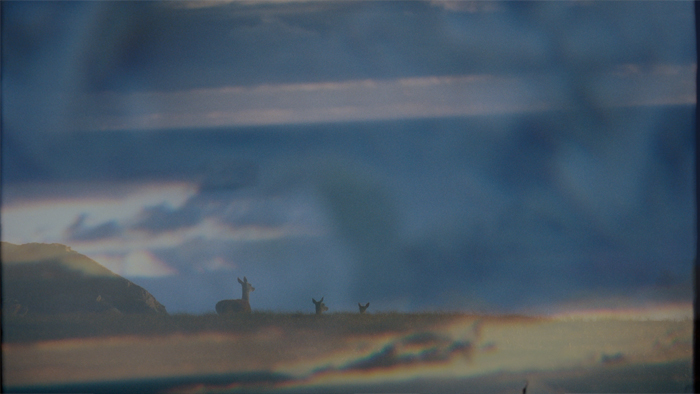
barrunto
Emilia Beatriz
A speculative narrative film informed by poetry and theories of quantum entanglement across diasporic distance. An intimate exploration of grief and resistance in shifting landscapes of loss, from the streets to the bed.

A Plot, A Scandal
Ligia Lewis
Conceptual choreography as critique, in Ligia’s film of Caribbean plots and scandals, and the possibilities of anti-colonial revenge, rest and repair.
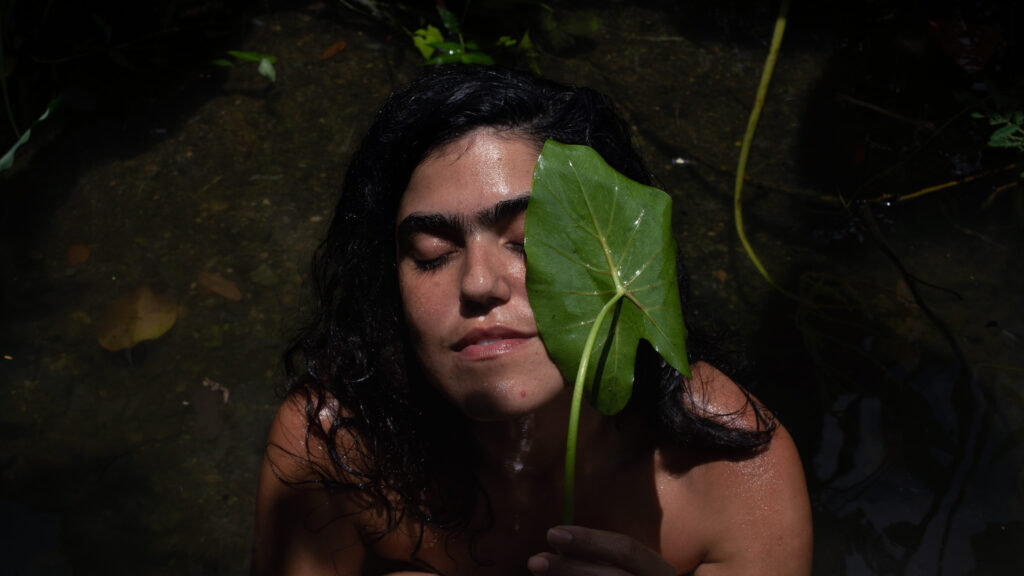
Oriana
Beatriz Santiago Muñoz
A film as a translation of Monique Wittig’s landmark feminist novel Les Guérillères, in which a plural protagonist of militant feminists inhabit a fantastical, enigmatic and hallucinatory miasmatic space-time of post Hurricane Maria Puerto Rico.

Glasgow School of Art Friday Event
Beatriz Santiago Muñoz
Beatriz will explore her thinking, on film as translation, plural subjectivity or land-based militancy. Discussion will centre around her work Oriana and its companion piece Oenanthe, which will be screened in full.

When my heart looks for you, where will it find you?
Sadia Shirazi Mezna Qato Sakina Ali
A workshop inviting participants to enact a series of scores that explore witnessing, testimony, grief and mourning, facilitated by Mezna and Sadia, and accompanied by Sakina Ali.

Subversive Strategies in Sound and Music
Rashad Becker Sunik Kim
A chat with Rashad about the communist, conceptual methodology that informs his ground-breaking synthetic music—a form of speculative sonic fiction writing to produce hyperreal non-representational auditive experiences.
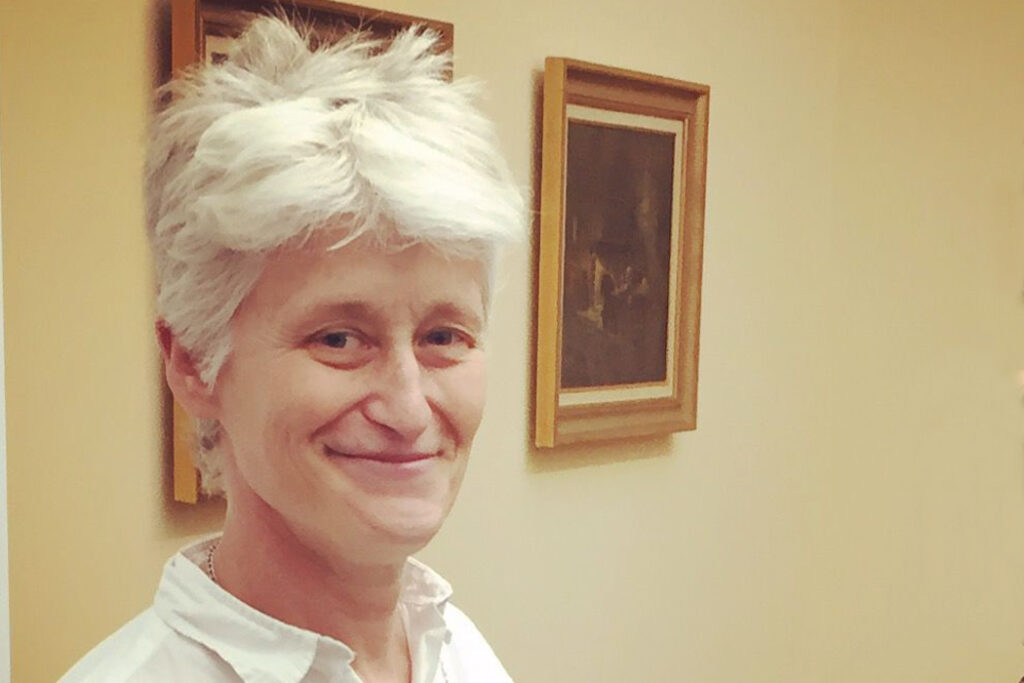
Analytics of Existence
Elizabeth A. Povinelli Mijke van der Drift
Elizabeth’s writing pulls apart toxic settler colonialism and the worldview used to justify it; working towards an alternative distribution of powers, so that ways of being otherwise can endure.
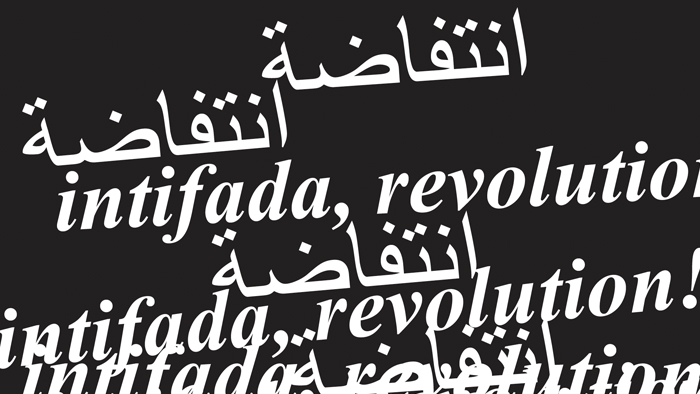
IN OUR LIFETIME Workshop
Hussein Mitha
A workshop for educators, activists and young people to think about radical, anti-imperialist pedagogy, and what fighting for the Palestinian cause looks like for young people in the imperial core. PDF of the resource available soon.

More Than Perfect
Denise Ferreira da Silva Arissana Pataxó Leanne Betasamosake Simpson Geni Núñez Ailton Krenak (by video)
A conversation between influential figures thinking through Blackness and Indigeneity, asking: what if we took seriously the possibility that this world, as we know it, may be coming to an end? We dread the loss of this world, but have we begun to imagine the one to come?

The We of revolutionary love
Houria Bouteldja
The practice of North African Indigenous revolutionary love, in the face of European capitalist violence and settler colonialism, with one of the most vital anti-colonial thinkers in Europe.

If there is a future to imagine, it is ancestral
Amilcar Packer Arissana Pataxó Geni Núñez
A Study Session focused on the thinking of Ailton Krenak – one of the great leaders of the Brazilian indigenous movement – led by curators and artists Amilcar Packer Arissana Pataxó.
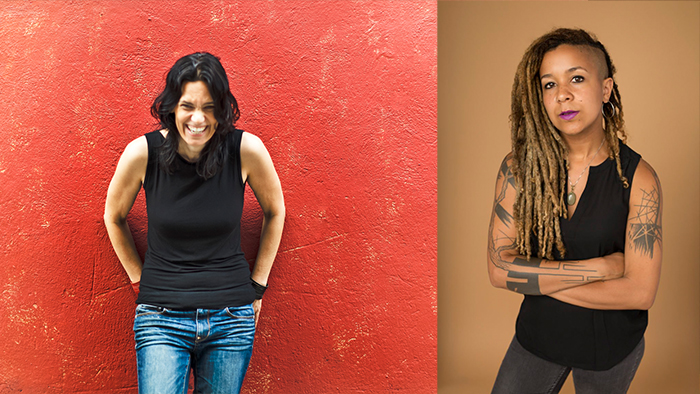
Rehearsals for Living
Leanne Betasamosake Simpson Robyn Maynard Harry Josephine Giles
Reading their letters to each other, and chatting about prefigurative politics as the practice of relentlessly building worlds through unspeakable violence and loss; of building worlds and living in them anyway.

The Ancestral Present
Karrabing Film Collective Elwood Jimmy
Watching films and chatting with Karrabing members about those films: as they attend to the memory and practice of the ancestral present and the ancestral catastrophe that Karrabing and their more-than-human world find themselves facing.

Trans Breakfast at the End of the World
Mijke van der Drift Nat Raha
An informal conversation, over breakfast, about how abolition and movement work structures Mijke and Nat’s approach to transfeminism, ahead of their new book Trans Femme Futures.
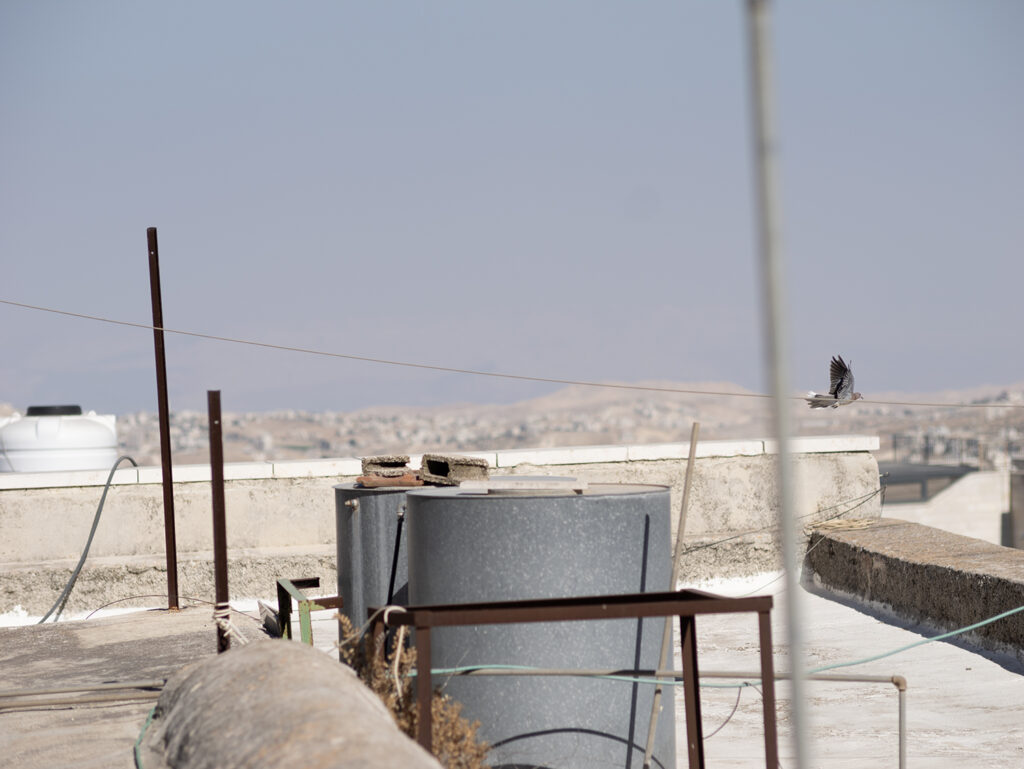
Toward Nakba as a Planetary Process
Ayreen Anastas Rene Gabri Houria Bouteldja Avery F. Gordon Amirah Silmi Françoise Vergès Additional Contributors
An assembly to try and provide some experiential and theoretical resources for the renewal of a certain affective, extra-political sociality, in the face of one of our great adversaries; the forces of colonial, imperial, genocidal denial.
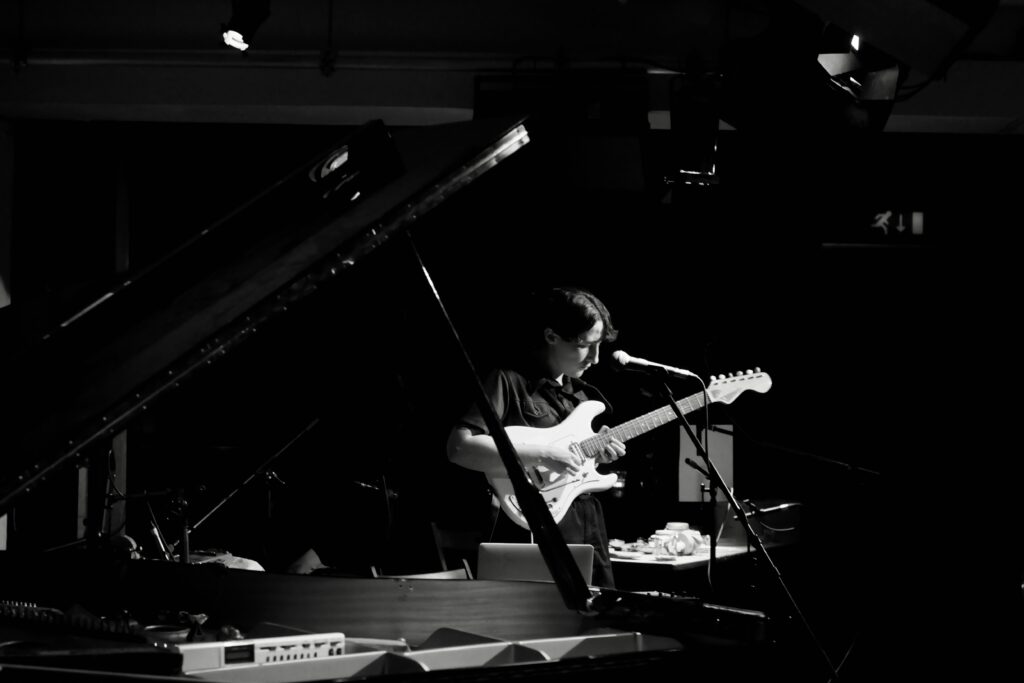
aquasomatics
Nat Raha Ailie Ormston
Transfeminist and revolutionary poetry, voice and timbral abstraction: a sounding and spatialising of reparative sonic and somatic practices that can speak back to violent histories of expropriation and ecocide.
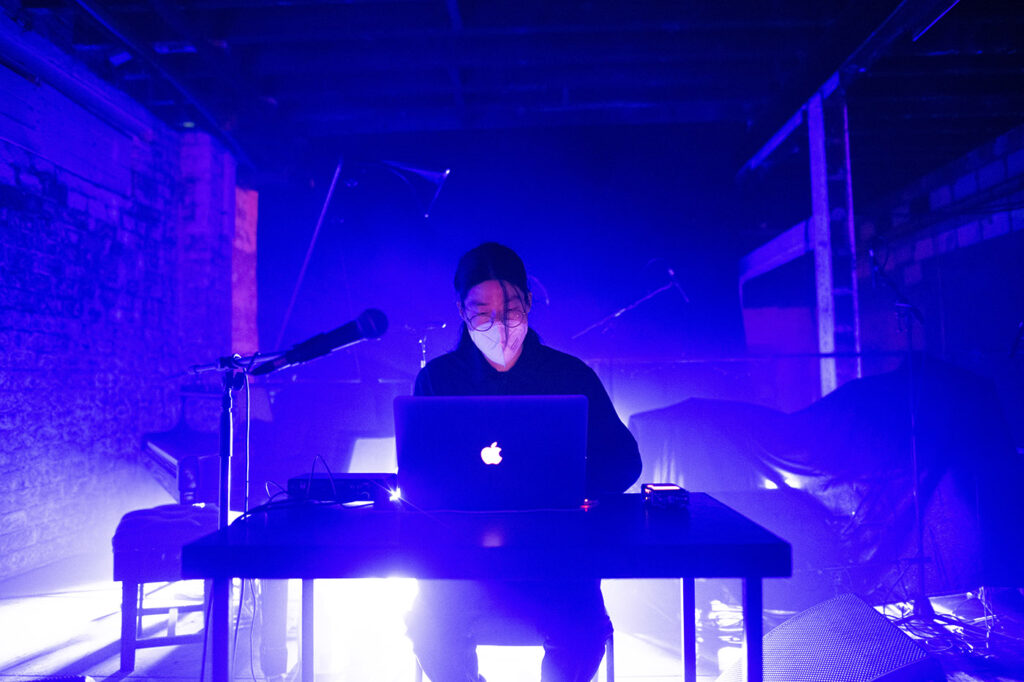
Performance
Sunik Kim
A dense materialist experience at the limits of contemporary computer music, drawing on Korean Shamanism and Communism; striving to create a strange new vibration to the world that seems to contain the seed of everything.
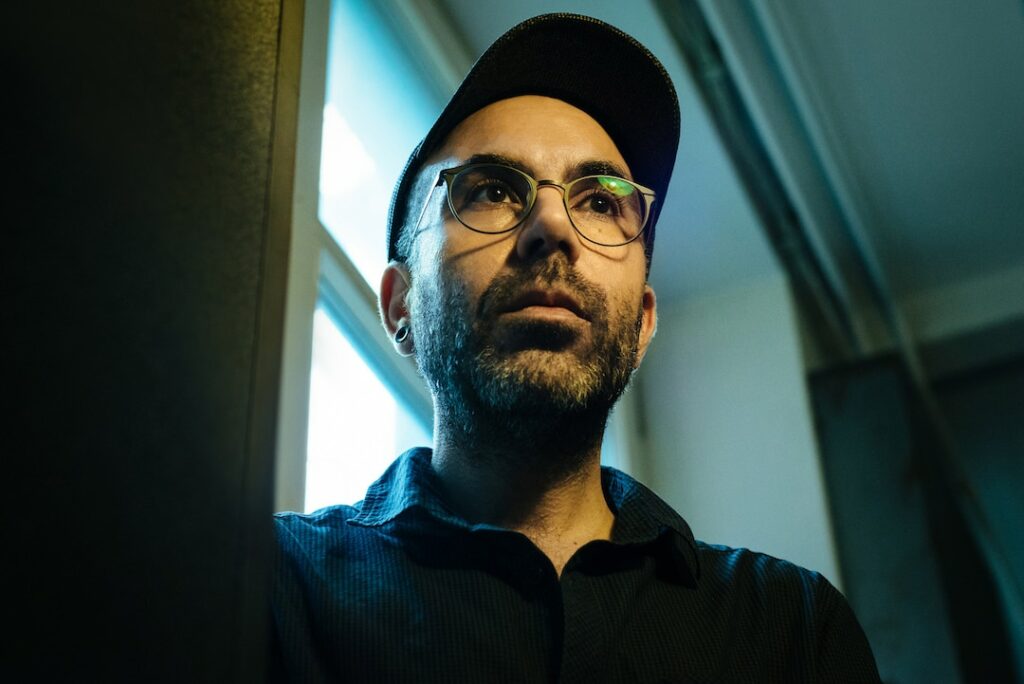
Based on a True Story – 1986
Rashad Becker
The most sophisticated synthetic music around: timbrally otherwise body music as sonified fictions and auditive sociograms.
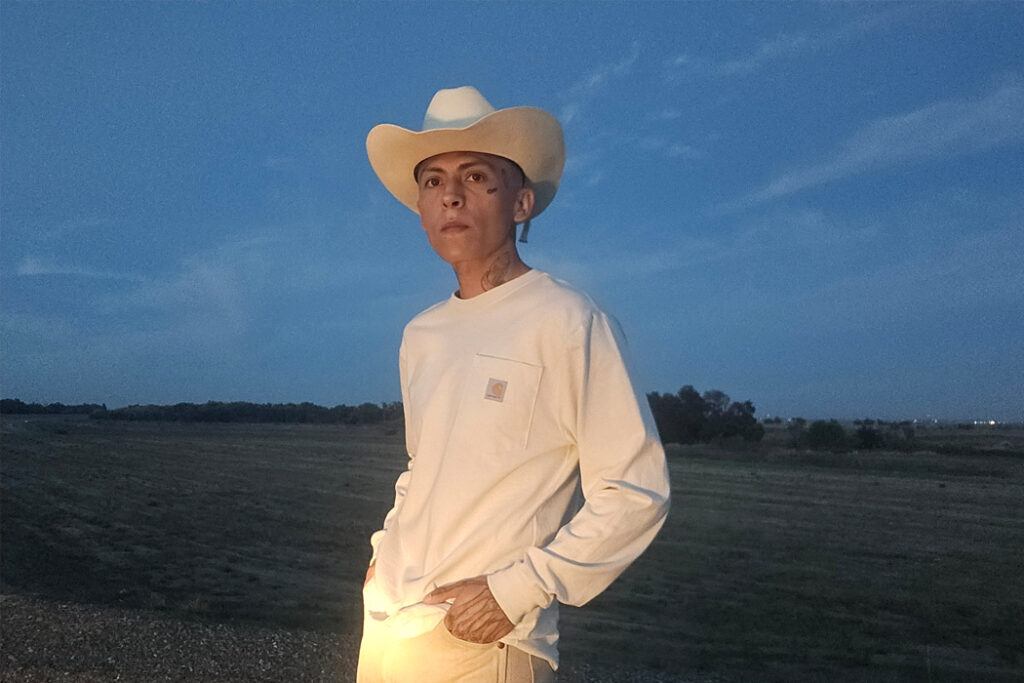
DJ E
Chuquimamani-Condori
Ecstatic, intensely joyous experimental club music: like “the sound of our water ceremonies…40 bands playing their melodies at once to recreate the cacophony of the first aurora and the call of the morning star Venus”.

Karrabing at ATLAS Arts
Karrabing Film Collective
As part of Karrabing’s visit to Scotland, the collective will be hosted for three days in the Isle of Skye by The School of Plural Futures.
Credits
Thank you
Major parts of the Episode have been organised, and emerged out of ongoing conversations with Denise Ferreira da Silva & Amilcar Packer, Ayreen Anastas & Rene Gabri, Elizabeth A. Povinelli, and Counterflows.
Thanks also to Henry at Infrastructure Humanities Group at Glasgow University; LJ, Jill, Paul, Nadia, Yvonne, Christiana and everyone at Tramway; our designer Valerio Di Lucente and our web developer Lizzie at Rectangle; Helen, Emmie, Robyn & Katharine at ATLAS Arts; at GSA—Nat at FACS, Beulah and John at Race Rights and Sovereignty and Neil from the Friday Events series. Pablo de Ocampo, Joel White, Stoffel Debuysere, Mijke van der Drift, Robert Sember, Fred Moten and Sean Meehan.
And a big thanks to Andrew Howell for doing the Captioning and Yvonne Waddell for organising the BSL and to Dev Bernard with supporting with translation.
On Episode 11 Arika is:
Siobhan Carroll, Jade Eckhaus, Barry Esson, Jim Hutchison, Emma Macleod, Erin Maguire, Bryony McIntyre, Cloudberry MacLean, Nick Millar, Anissa Parquin, Katy Walsh, Iain McCormack and Jack Wrigley.
Supported by


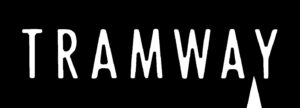


Media Partner

Access
Live Stream
We will be Live Steaming most events. Watch them on the Episode 11 main page.
Check each Event’s page, or visit the Schedule (and filter for ‘Live Stream’) to see which events will be Live Streamed. The Live Stream will have a hosted chat function.
We’re trying out Live-Streaming with a dedicated multi-camera, editing and streaming crew: so it should look and sound legit, inspired by I wanna be with you everywhere.
It will be its own experience, different from, but complimentary to attending live, for anyone who can’t be with us in person for whatever reason—halfway between FOMO and JOMO.
Venue
Tramway is on Albert Drive in the Southside of Glasgow, next to Pollockshields East train station. Tramway has step free access to their public and performance spaces and automatic double-width main doors. Their upper floor, is accessible by an elevator. For more access details about Tramway please visit www.bit.ly/TramwayAccess and https://www.tramway.org/access/
Bathrooms
Tramway has two gender-neutral single-occupant wheelchair accessible facilities available in the main foyer and one in their quieter upper foyer. In addition, they have two sets of gender-neutral toilets in the main foyer, and two sets of gender-specific toilet facilities in the upper foyer.
Quiet Space
There will be an Episode Quiet Space in the Tramway Studio which will have a range of comfortable seating, low light levels, stim materials, lego, ear defenders and ear plugs, and a selection of reading and drawing materials. This is a space for anyone who needs to chill out a bit, relax and take time out from the events and the bustle. It’s designed around the needs of autistic people, but everyone is welcome.
Open during the following times:
Thurs: 17:00– 21:00
Fri: 18:00 – 22:00
Sat: 13:30 – 22:30
Sun: 13:30 –22:00
Covid Mitigation
Masks & Testing
Wearing face masks is encouraged, but not mandatory. There will be masks available.
We encourage people to test themselves in advance and not to attend if feeling unwell: you can always watch from home on our livestream.
Socially Distanced Seating
Tramway 1 and Tramway 4 will have a distinct socially distanced seating area (within the larger seating area). Depending on the event/ configuration, they will either be in the seating bank, or the balcony. These will be signposted. Ushers can direct you.
Ventilation/ Filtration
We will install temporary air purifiers in the socially distanced seating areas in Tramway 1 and 4*.
Tramway 4 will additionally be ventilated by opening doors to the outside between events.
The Studio will be ventilated by opening window vents between events.
*Tramway 4 is not mechanically ventilated. Tramway 1 has a very large volume of air. We will install small, quiet temporary air purifiers with HEPA 13 particle filters, within the socially distanced seating areas in Tramway 1 and 4. These will improve air filtration in those areas (inc. particulate pollutants: viruses, bacteria…) although to an unpredictable extent, given the total volume of air in each venue.
British Sign Language (BSL)
A selection of events at Episode 11 will have British Sign Language (BSL) Interpretation.
A quick way to find out which events have BSL interpretation is to look at the Accessibility section of the schedule.
Our BSL interpreters for this event are to be confirmed; we will update when they are booked.
If you would like to attend any other events and require BSL interpretation Arika will try to make that happen. To request this, contact us, with as much notice as possible, on info@arika.org.uk.
Live Captioning
Most events will have Live Captioning; a verbatim transcription of dialogue into text as it is spoken live. In-person, the text will appear on a screen beside or behind the speaker. Online, the live captions will appear along the bottom of the screen. The captioner for Episode 11 is Andrew Howells.
A quick way to find out which events have Live Captioning is to look at the Accessibility section of the schedule.
Subtitles
All films that are screening will have English subtitles.
Translation
Some of our guests at Episode 11 don’t speak English, as their first language, or at all. For their events, where appropriate, translators and/or other artists on stage will translate what they say into English, in various ways, depending on what works best for them or the event.
A quick way to find out which events have Translation is to look at the Accessibility section of the schedule.
Subpacs
3 Subpac units are available for select events in Tramway 1. Worn like a low-profile backpack or attached to your chair, Subpac’s pulse sound (especially bass) through your body. Reserve in advance or request on the day at the Tramway Box Office on a first come first served basis.
Ear Protection
Some events will have sections that are at a loud volume. Ear Plugs will be available on the door. A number of Ear Defenders, will also be available, first come first served on the door.
Content Notes
The Episode will involve improvised conversations and events whose content cannot be predicted. There could be topics or images that come up that some might find upsetting. We’ll make announcements before events, where appropriate.
Active Listener
We will have an Active Listener present at all the events happening in Tramway, (except Sunday evening). They will attend and observe, identifying themselves at the start. If required, the Active Listener can offer support to those who might need it either during or after the event. This might be to listen and hear what someone wants to share about their experience at the event, to offer brief emotional support if they have been particularly triggered at an event. Personal matters shared with the Active Listeners will be held in confidence.
Age Ratings
If you would like to attend with someone under 16, you should decide whether an event is suitable for a young person in your care.
Some notes to help you decide
• All conversations and performances are improvised, and can’t be predicted in advance.
• None of the films have a BBFC rating. We would consider them 15+
• Music performances will be loud, and could have intense lighting.
• Each event page gives a good idea of the subjects being addressed. In general these could include structural violence, oppression (racism, ableism, sexism, transphobia, islamophobia…), and war. Speakers or artists might refer to personal experience of violence, and have not been asked to filter their comments for any particular age range.
• Children are welcome during all hours at the Tramway, and in the Tramway Cafe Bar until 10pm, but not beyond then, as the Cafe Bar area is a licensed premise.
• Tramway offer free Babes in Arms tickets for children under 1 who will sit on their parents/guardian’s lap.
We are happy to discuss any questions you have, via email, to help you decide what is best for you; email us on info@arika.org.uk
Safer Spaces Statement
We have a Safer Spaces Statement that covers all the events at the Tramway and an Online Safer Spaces Statement if you are attending the Live Stream, do have a read in advance. It will also be posted up at Tramway and available at the Tramway Box Office.
Other Access Requests
If there is anything else that we might be able to support with to make your attendance at the Episode more possible, please send us an email us in advance to info@arika.org.uk
Tickets
EVENING PASSES
- An Evening Pass gets you into to all events happening that day that start at 16:00 or later
- Buy an Evening Pass for each evening you want to attend. There is no Festival Pass. Buy 1 Evening Pass per person per evening
- Choose what to pay on a sliding scale from £1-£15
DETAILS
- Book online, in-person at Tramway or by phone on 0141 276 0950
- Tickets subject to transaction fees: £1.50 online, £1.75 by phone
- You can choose what sliding scale to pay based on your circumstances.
- Paying for tickets helps support Arika’s work and the artists at the festival; please do so if you can.
- We have a number of Free tickets available on a first come first serve basis for those who would like to come but need to access a Free ticket to do so. Please email tramwayboxoffice@glasgowlife.org.uk to reserve these. This email is managed during Tramway opening hours Wednesday – Sunday.
DAYTIME EVENTS
UNTICKETED
Events staring before 16:00 are FREE – First Come, First Served on the day. Except the following Ticketed events.
TICKETED
These events are FREE – Ticketed. These events have smaller capacities.
Click on the buttons above to reserve a space at any of these events.
LIVE STREAM
Free Access to any of the Live Streamed events on the Episode 11 Main Page.
See the Schedule and Filter for ‘Live Stream’ to see which events will be Live Streamed.